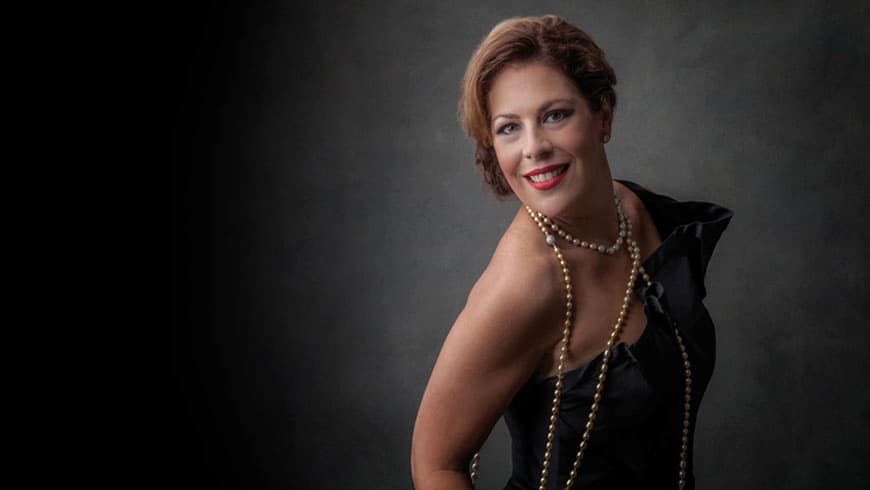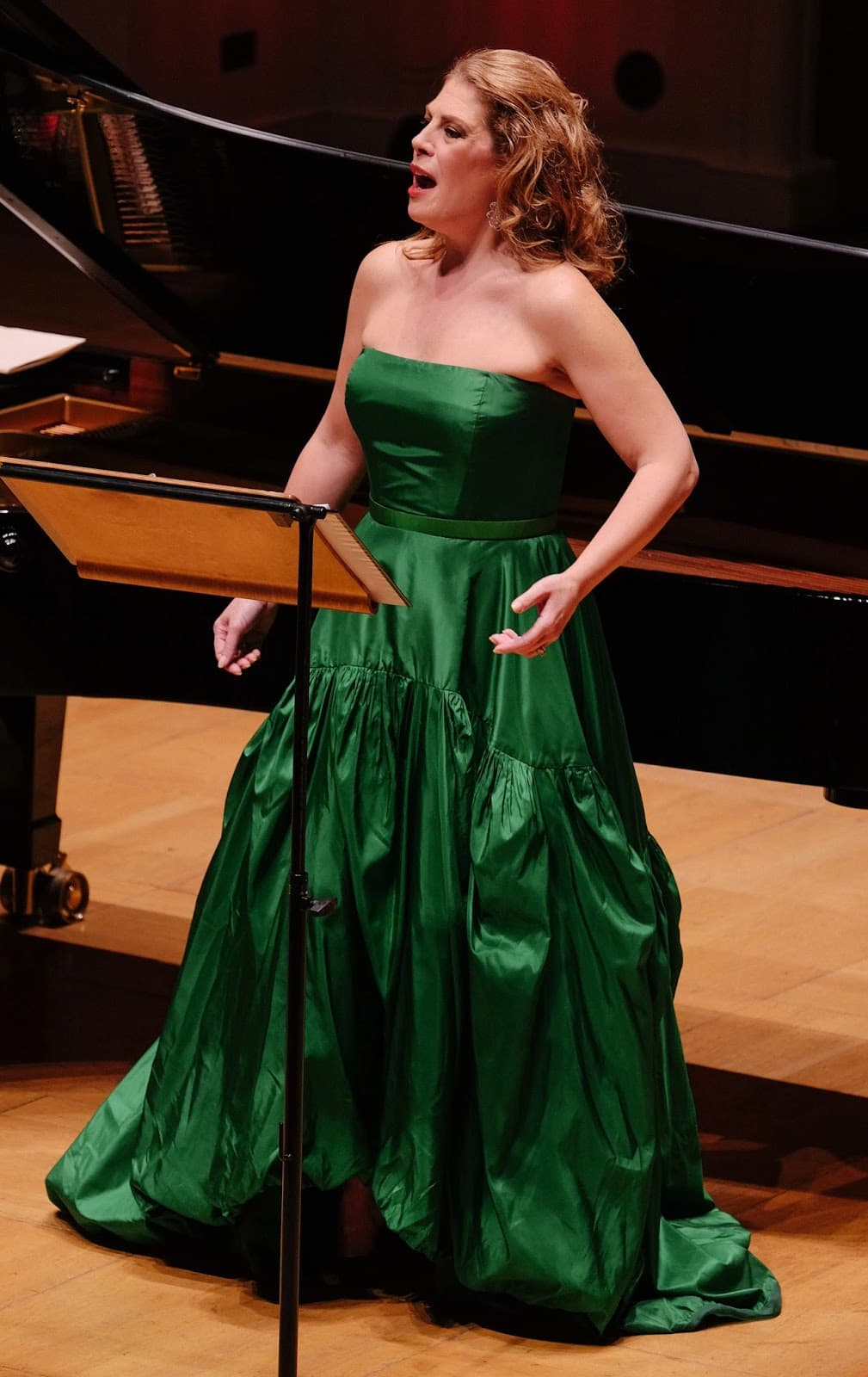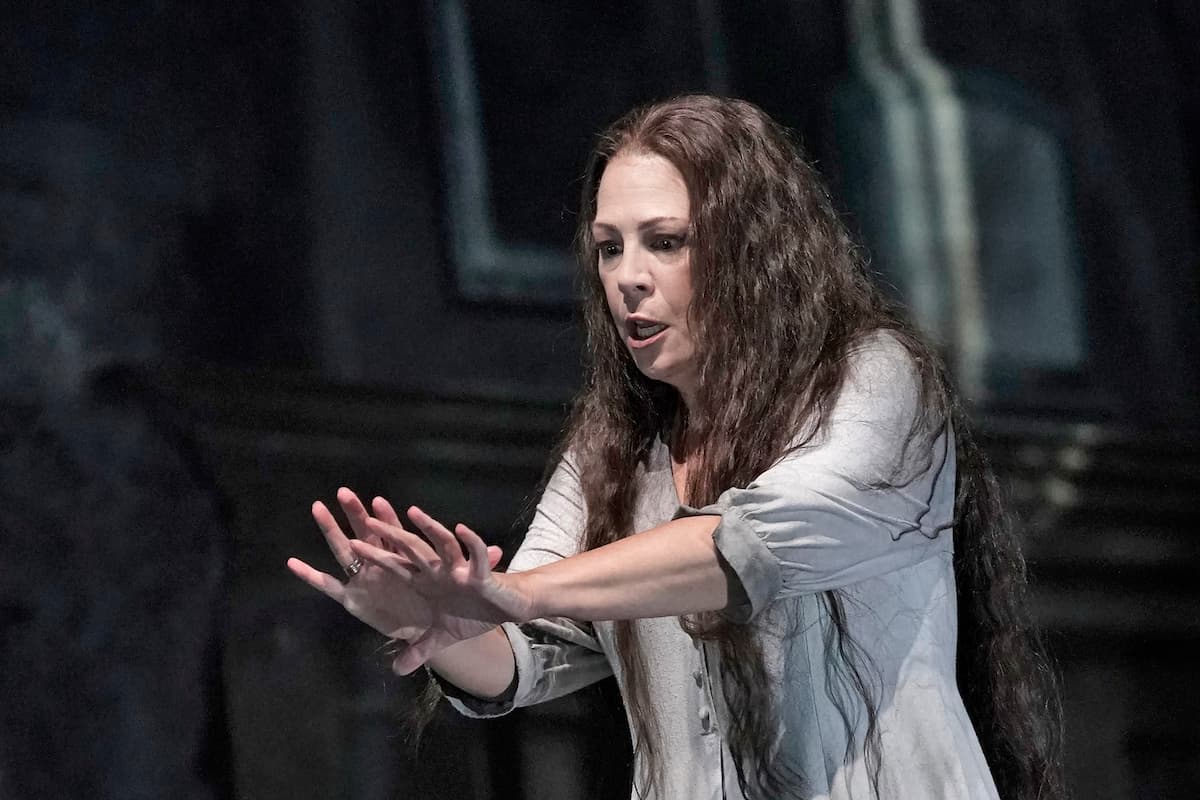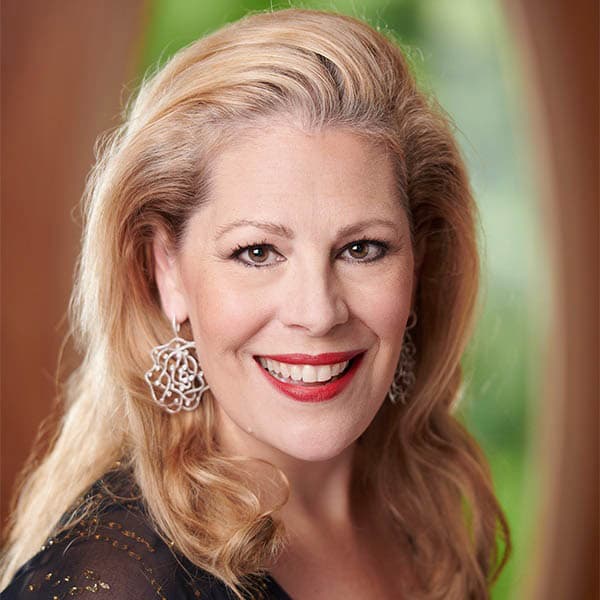Specialising in 19th-century Italian opera, Sondra Radvanovsky is a widely-celebrated interpreter of the bel canto, verismo, and the works by Giuseppe Verdi. A winner of several voice competitions, Radvanovsky’s luscious voice, sounding depth, and exquisite colour, are matched by her dramatic acting ability and versatility. According to a critic, “Radvanovsky has it all: extreme and thunderous high notes, an incredibly low chest voice, a big middle voice, a long fiato, and outstanding pianissimi. Her voice is big, metallic, and penetrating.”
Sondra Radvanosky Sings Puccini’s Tosca, “Vissi d’arte”
Midwest Beginnings

Sondra Radvanovsky
Radvanovsky was born on 11 April 1969 in the town of Berwyn, Illinois. Her Czech father and Danish mother always appreciated music, “but really could NOT hold a tune to save their lives.” Her father spoke Czech with his parents and friends, but he never encouraged her to speak it. “You’re American,” he told his daughter, “you should speak English.”
Her earliest musical memory is singing along with a Karen Carpenter record when she was about 4 or 5, and since they went to church every weekend, “hearing the Methodist hymns shaped my view of music.” Her mother recalled that Sondra “would always sway along with the beat, even at a very early age.” Sondra sang her first solo at the age of 8 at some “**** town in the middle-of-nowhere Indiana.”
Gaetano Donizetti: Roberto Devereux (excerpts) (Sondra Radvanovsky, soprano; Eric Ferring, tenor; Kathleen Felty, mezzo-soprano; Ricardo José Rivera, baritone; Chicago Lyric Opera Chorus; Chicago Lyric Opera Orchestra; Riccardo Frizza, cond.)
Holy Mess

Her father was the head user at the church, and the choir leader had spotted and nurtured her talents. As her father was walking down the aisle with the offertory plate, the little girl stood in the pulpit ready to unleash her powerful voice. Sadly, she had forgotten the words. Instead of the solemn lyrics of “He Shall Feed His Flock,” she sang a curse word that was clearly audible to the whole congregation.
Radvanovsky remembers, “My father dropped the full offertory plate and all these coins, ching, ching, ching, ching.” The sound of the coins bouncing on the floor rang out amidst the shocking silence, with her mother trying to disappear from the surface of the earth. “It was a holy mess.”
Sondra Radvanosky Sings Bellini’s Norma, “Casta Diva”
Pneumonia and Aftermath

Sondra Radvanovsky as Lady Macbeth
As a young child Radvanovsky caught pneumonia, and during treatment, a tube was forced down her tiny throat. The tube helped cure the illness but it did some damage as well, causing scarring that turned to polyps later in life. That little irritation would subsequently have a big effect on her career, as she had to take a couple of days off between performances as her voice was often tired.
For many years she suffered from the condition but finally decided to have surgery. Radvanovsky remembers that “surgery and the recovery was a nervous time, however, the result was a pleasant surprise.” Her voice became even stronger, more supple, and capable of an even bigger sound. “Most voices get weaker and more fragile in mid-career, but I seem to be getting better with age.”
Antonín Dvořák: Rusalka, Op. 114, B. 203, Act I: Mesicku na nebi hlubokem (Sondra Radvanovsky, soprano; Philharmonia of Russia; Constantine Orbelian, cond.)
Musical Direction

Radvanovksy took piano lesson at the age of 9, and she hated it. Her parents did not force her to continue and stopped the piano lessons, and Sondra started playing the flute and piccolo. However, when she saw a televised opera performance at the age of 11, she immediately decided to become a professional singer. “I was very fortunate to find my purpose in life at a very young age,” she explained in an interview.
During her senior year in High School, her father passed away from a heart attack. She recalls, “It was my singing that kept me together, as well as my wonderful mother, and she sought out a great voice teacher in Los Angeles and I studied with him every weekend while I was in High School.”
She ended up getting a full scholarship to USC and eventually transferred to UCLA as a drama major. College, however, held no attraction and she studied voice privately until she won the Metropolitan Opera National Council auditions in 1995. “The rest, as they say, is history!”
For more of the best in classical music, sign up for our E-Newsletter
